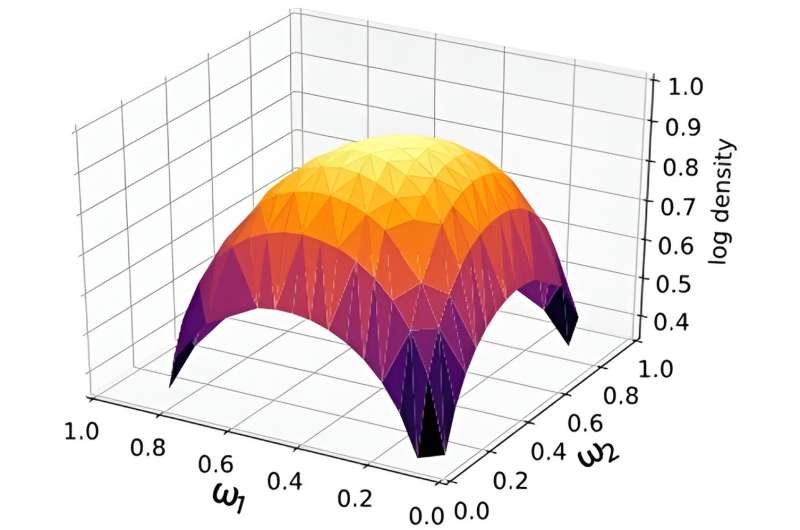This article has been reviewed according to Science X's editorial process and policies. Editors have highlighted the following attributes while ensuring the content's credibility:
fact-checked
peer-reviewed publication
trusted source
proofread
Statisticians and physicists team up to bring a machine learning approach to mining of nuclear data

Physicists use theoretical models to study physical quantities, such as the mass of nuclei, where they do not have experimental data. However, using a single imperfect theoretical model can lead to misleading results. To improve the quality of extrapolated predictions, scientists can instead use several different models and mix their results. In this way, scientists make the most of the collective wisdom of multiple models and obtain the best prediction from the most current experimental information.
To improve the predictability of complex computational models, a team of nuclear physicists and statisticians proposed a novel statistical method. This method uses a statistical process called Bayes' theorem to revise the probability of a hypothesis as new data are obtained. The work is published in the journal Scientific Reports.
The resulting machine learning framework uses the so-called Dirichlet distribution. This statistical process combines the results of several imperfect models. The researchers demonstrated the ability of the proposed mixing techniques to mine data on nuclear masses.
This research demonstrated that global and local mixtures of models have excellent performance in both the accuracy of their predictions and their uncertainty quantification. These mixtures appear to be preferable to classical Bayesian model averaging, the conventional approach. Additionally, the researchers' analysis indicates that improving model predictions through straightforward mixing leads to more robust extrapolations than does mixing of corrected models.
More information: Vojtech Kejzlar et al, Local Bayesian Dirichlet mixing of imperfect models, Scientific Reports (2023). DOI: 10.1038/s41598-023-46568-0
Journal information: Scientific Reports
Provided by US Department of Energy





















